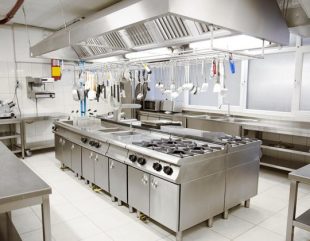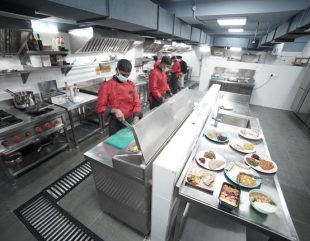Many states mandate commercial kitchens for any business that prepares food for the public, including caterers, bakeries, food truck operators, and private chefs. Having a commercial kitchen hire is the way to go if you want to save time and money while meeting the neighbourhood health department’s requirements.
What is a commercial kitchen?
Many people become sick from eating food that is either improperly cooked or kept. Commercial kitchens and commissary kitchens are subject to licencing requirements and inspections by the local health authority to ensure secure cooking and storage.
The industrial-grade equipment needed to prepare, store, and package vast quantities of food is also available to chefs in commercial kitchens.
Typically, there are two options when it comes to renting commercial kitchens:
In a shared kitchen, you have the room and time to prepare meals, but you don’t need the keys to the kitchen on your own. There are certain restrictions on when you may use the kitchen, such as when you can use the oven or how much space you have in the walk-in fridge or refrigerator.
Individual cooktops: For the duration of your rental, you will have exclusive usage of the property. Greater access comes at a higher price.
When would you need to hire a commercial kitchen?
The convenience of hiring a commercial kitchen depends on whether or not it is required for a food company in your location. But think about the benefits of commercial kitchen hire before you put another cost on your financial report.
Using a rented commercial kitchen has several benefits:
Ability to adapt:
The amount of time you spend in the kitchen weekly or monthly is up to you. There is always another rental option when you feel uncomfortable here.

Minimal operational costs:
You may use business-grade appliances and machinery for a monthly subscription without purchasing them. The kitchen’s operator handles utilities, facility upkeep, insect control, and other expenditures.
Meeting requirements:
Commercial kitchens must adhere to local safety and health regulations to prepare and store food for customers.
Professional connections:
You join a community of people who work in the food industry when you rent a common area. Knowledge and advice shared with others helps everybody.
Are there any local options for renting a commercial kitchen?
First things first: get suggestions from people you know who operate in the food service sector in your area if you’re considering renting a commercial kitchen.
Restaurants, culinary schools, churches, educational institutions, and retirement communities are non-traditional possibilities to consider. In their spare time, you may hire one of their many licensed commercial kitchens.
You can even search online for local rental listings.



